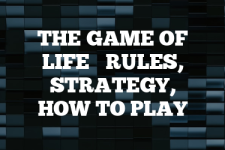Clue: Classic Mystery Board Game Rules, Winning Strategies, Essential Instructions
Introduction
Clue/Cluedo is a classic board game that has been entertaining families and friends since its creation in 1949. The game is a murder mystery where players take on the roles of suspects and try to solve the crime by deducing who the murderer is, the weapon used, and the location of the murder. The game requires strategic thinking, logical deduction, and a bit of luck. The equipment needed to play Clue includes a game board, six character pieces, six miniature weapons, 21 cards, a detective notebook pad, a die, and a confidential case file envelope.
Rules for playing Clue
- The game begins by randomly selecting one suspect, one weapon, and one room card. These cards are placed in the confidential case file envelope and kept secret from the players.
- The remaining cards are shuffled and distributed to the players. Players must keep their cards secret.
- Players take turns rolling the die and moving their character pieces around the game board. The rooms on the board are the possible murder locations.
- When a player enters a room, they can make a suggestion about the murder details. The player to their left must then reveal if they have any of the suggested cards. If they do, they must show one to the suggesting player.
- Players use their detective notebook to keep track of the clues they gather throughout the game.
- The game continues until a player makes an accusation. This is a final guess about the murder details and can only be done once per game by each player.
- If the accusation is correct, the player wins the game. If it’s incorrect, the player can no longer make suggestions or accusations but must still reveal their cards when asked.
While these are the official Clue rules, some players like to add their own ‘house rules’ for variations of the game. For example, some players allow multiple accusations or introduce new characters and weapons.
How to Win at Clue
Winning at Clue requires a combination of strategic thinking, logical deduction, and a bit of luck. Here are some strategies for beginners, intermediate, and advanced players:
- Beginners: Start by making suggestions that include the cards in your hand. This will allow you to eliminate these cards as possibilities and focus on finding the cards that are in the confidential case file envelope.
- Intermediate: Pay attention to the suggestions made by other players and the cards they reveal. This can give you clues about the cards they have and the ones they don’t have.
- Advanced: Try to mislead other players by making suggestions that include cards you already have. This can make them believe that these cards are in the confidential case file envelope and lead them to make incorrect accusations.
Best Strategies for playing Clue game
The best strategies for playing Clue involve careful observation, logical deduction, and strategic suggestions. Here are some strategic plays to aim for:
- Make suggestions that force other players to reveal their cards. This will give you more information and help you narrow down the possibilities.
- Keep track of the cards that have been revealed and the ones that haven’t. The cards that haven’t been revealed are likely to be in the confidential case file envelope.
- Try to enter different rooms on each turn. This will allow you to make more suggestions and gather more clues.
- Use your detective notebook to keep track of the clues you gather. This will help you make logical deductions and accurate accusations.
Scenarios for Clue
Playing Clue can lead to a variety of scenarios, both good and bad. Here are some common scenarios and how to turn them to your advantage:
- Scenario: You have a lot of cards. This can be a disadvantage because it means there are fewer possibilities for the murder details. However, you can turn this to your advantage by making suggestions that include your cards. This can mislead other players and lead them to make incorrect accusations.
- Scenario: You have few cards. This can be an advantage because it means there are more possibilities for the murder details. However, it can also be a disadvantage because it gives you less information. To turn this to your advantage, try to make suggestions that force other players to reveal their cards.
- Scenario: You are far from the rooms. This can be a disadvantage because it limits your ability to make suggestions. However, you can turn this to your advantage by using the secret passages. These passages connect opposite corners of the game board and can help you reach the rooms faster.
- Scenario: You are close to the rooms. This can be an advantage because it allows you to make more suggestions. However, it can also be a disadvantage because it can make you a target for other players’ suggestions. To turn this to your advantage, try to enter different rooms on each turn. This will allow you to gather more clues and make more accurate accusations.
Frequently Asked Questions about playing Clue game
Question: Can I make a suggestion about a room I’m not in? Answer: No, you can only make a suggestion about the room you’re in.
Question: Can I make an accusation on someone else’s turn? Answer: No, you can only make an accusation on your turn.
Question: Can I make multiple accusations? Answer: No, you can only make one accusation per game. However, some players allow multiple accusations as a ‘house rule’.
Question: What happens if I make an incorrect accusation? Answer: If you make an incorrect accusation, you can no longer make suggestions or accusations but must still reveal your cards when asked.
Question: Can I use the secret passages? Answer: Yes, you can use the secret passages to move between opposite corners of the game board.
External Links
For more information about Clue, visit the official game website: Clue Official Website

Eve Brownlee was a gamer before gaming communities on the internet were a thing. Eve grew up playing traditional, standard deck card games like Rummy and Bezique, taking an interest in the classics Backgammon and Chess. Parlor card games like Bridge continue to keep Eve active in the community. After a long career, primarily in horticulture for USDA in Maryland, Eve now travels and writes on The Pineapple (pineapples.info) and contributes to Quora/Pinterest topics. Contact Eve via email.



